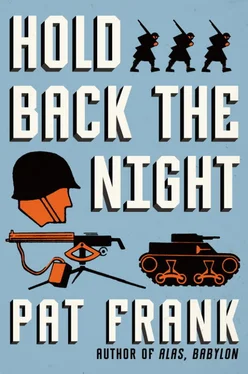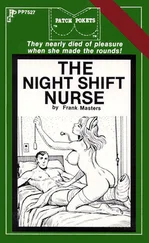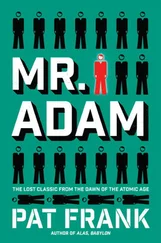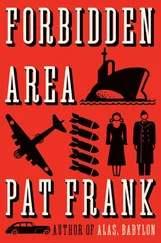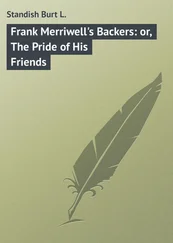“Well, he won’t get away with it!” said the admiral.
“As to his final intentions,” Toomey persisted, “I think you’ll find a remarkable parallel with Genghis Khan. Genghis Khan said, ‘A man’s greatest joy in life is to break his enemies, and to take from them all the things that have been theirs.’ Like Genghis Khan, Mao accepts war as glorious and inevitable. And he doesn’t care how long a war lasts, for he has limitless time, and unlimited lives. In the history of China, a hundred years is like a single year to us, and a hundred dead is like one dead.”
The three of the Intentions Conference now examined Toomey, silently, evaluating him as he had evaluated the enemy. Toomey was not impressive. Had they seen him in the Burma jungle in ’forty-four they would have categorized him as a good, tough officer, tan and lean. But he had eaten too well at Fisherman’s Wharf, and Dinah’s, and Omar Khayyam’s, so that now he was a bit paunchy, and he wore spectacles, and his color was not good. Malaria, and atabrine, would always be in his veins, but they did not know this. It was simply that his color was not good. “Where did you learn all this crap?” asked the admiral.
“I was in China, sir, when people were just beginning to talk about Mao. And later I was on one of General Marshall’s peace teams. But I’ve never seen or met Mao. All I know about his personality I got out of books.”
“Books!” the admiral snorted. “I never read books. Don’t have time. Why there isn’t a day my desk isn’t eighteen inches deep in intelligence reports, all classified secret, or tops.” For a moment the admiral was thoughtful. “You know,” he said, “sometimes I think the people in the lower echelons put a high classification on their documents, just so everybody will read ’em.”
Major Toomey saw that the conference was drifting, and that it was necessary to bring it back on the track. It was his duty. “In my opinion, gentlemen,” he said, “Mao will attack very shortly.” He paused, so JANAIC could realize the importance of what he had said. “He’s in a perfect position. As the general said—” he turned to Air— “we no longer have aerial supremacy, because there is no battleground for our planes. Because of political considerations, we cannot hit the enemy where he lives. So long as Mao’s lines of communication, and his supply dumps, and airfields are immune from attack, he can stage troops for an offensive. Mao knows that. He’s no dummy. He’ll take advantage of it.”
Air leaned back in his chair. “Well, gentlemen, what do we do?” he inquired. “Do we draft a message to Eighth Army, and Ten Corps, saying we believe an attack is coming? Or do we let things rock along for a few days until we have more definite information?” He looked at his watch again. “Personally, I think we ought to frame some sort of message, if only for the record.”
“Doesn’t Tokyo have the same information we have from Saigon and Hong Kong and New Delhi, and from the Corps and Divisions?” asked Infantry.
“Well, I would assume so,” said Air. “Tokyo ought to have more than we have.” Then Air remembered Pearl Harbor, and how everyone had assumed that everyone else had all the intelligence, and it turned out that nobody had all of it, although everyone had a piece of it. Air decided to hedge. “It wouldn’t hurt if we just drafted a caution message, nothing absolutely definite, but just what we’ve discussed here.”
“Wouldn’t it be a bit presumptuous?” asked the admiral. “I mean, in view of today’s communiqué?”
“Think you’re right,” Infantry agreed. “Take me. If I were in Tokyo, and I’d just announced we’d won it, I’d be pretty sore if someone way up here in Taejon said, ‘Signals over. The enemy is going to attack.’”
“Still—” Air began, and then realized that the vote would be two to one against him. “Yes, Tokyo must have better intelligence than we have.” He looked around at all of them. Major Toomey started to say something, but nothing came out of his mouth. “Well, gentlemen, that’s all, I guess,” Air said. “We want to thank you, Major Toomey, for a most enlightening report. I’ll see that air transport is arranged for you back to your division.”
“Thank you, sir,” said Toomey.
After Dog Company was assigned security patrol around the hydroelectric plant on the little peninsula at Ko-Bong, Sam Mackenzie and Raleigh Couzens had set up housekeeping, and established a Command Post, in the efficient manner of soldiers who make the best of every respite in battle. In the plant office Mackenzie had discovered a substantial steel table, and steel chairs. During the day this table served as the captain’s desk, and during the night it was for company officers’ poker. But on this evening it was the bench of a court of military law, and Mackenzie was the judge.
Kato entered the captain’s CP, and saluted. The tent was crowded.
“Kato, come over here,” said the captain, returning the salute.
Kato slipped between two big regimental MP’s, and past Kirby, gunnery sergeant of Dog Company and perhaps the oldest man in the regiment—older than the colonel, even. Kato glanced at Kirby’s face, square and forbidding as a concrete blockhouse, and it frightened him. Behind the captain, fondling his rifle as usual, sat Lieutenant Couzens. Directly before the desk stood Beany Smith, and the woman.
Mackenzie was now ready to proceed. He had heard the story of the MP’s. They had been patrolling the single street of Ko-Bong, walking cautiously so as not to step into what the orientation pamphlets primly called “nightsoil,” freshly emptied and foully steaming on the frozen slime, when they heard a woman scream. In a clay hut they had found this woman struggling with this private on her straw pallet. The private was drunk.
Beany Smith had been sick down the front of his jacket, and the stink of him filled the tent, and his eyes were puffed and swollen. Although he weaved with weakness from the dregs of the liquor, he was now sufficiently sobered by vomiting, and fear, to be questioned, in the opinion of the captain.
Mackenzie looked at the woman. Her face was flat, and one cheek was raw and darkened with dirt, and she was flat-chested and dressed in a shapeless and filthy garment. Her eyes were bright black buttons, and she was so frightened that she sweated and trembled. The captain turned to Kato. “Ask her what happened?”
Kato began speaking to the woman in the even sibilants of Japanese. She looked at the ground, silent. Kato repeated a question. The woman began to speak, haltingly, and then in flood.
As he turned to the captain Kato tried to avoid the eyes of Beany Smith. “Sir,” Kato said, “this civilian says that she was standing in her doorway, just before dark, when she saw Smith come down the street. When he saw her he offered her a can of peanuts. When she took them he grabbed her, and dragged her into the house. Then he—” Kato hesitated. It was one thing to talk like this to the men, but it was another thing to use the ordinary verbs in front of the captain.
“He what?” Mackenzie demanded.
“Well, he tried to lay her,” Kato said, hoping it was the right word.
“Did he?”
Kato addressed another question to the woman, and she replied in a single syllable, and followed it with a string of sentences.
“No, sir. He didn’t.”
“Did he use violence?”
“I can’t quite make out, sir.”
Mackenzie turned to Beany Smith. “What about it?” he asked, his voice flat and metallic, like the dull click from a forty-five when the hammer is drawn back.
“I didn’t do nothin’, sir. I thought she wanted it. I didn’t rape this gook.”
“You bastard! You swine!” Mackenzie exploded, and then he controlled himself, but only for a second. “You call this poor creature a gook! You’re worse than a gook, Smith! I’d like to see you shot. Right now!”
Читать дальше
